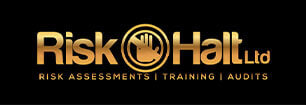Audits
Best practice for all different types of organisations


What are the benefits?
Regular health and safety audits are widely recognised as best practice for all different types of organisations. Audits are much more than just a box-ticking exercise or defensive measure, they can bring about positive benefits to businesses.
Primarily, audits enable you to protect employees, customers and visitors from harm. But, ultimately, a professionally conducted audit can also safeguard the existence of the company. That’s because a serious incident could result in prosecutions, severe reputational damage and financial penalties.
No organisation is legally obliged to undergo a health and safety compliance audit. Nevertheless, companies of all types and sizes consider regular audits to be essential.
What does a typical health and safety policy look like?
A health and safety policy sets out how the business intends to manage health and safety, stating clearly who does what, when, and how in three sections.
- Statement of intent, outlining the company's health and safety goals.
- Specific health and safety responsibilities of management and employees, listing names, positions and roles.
- Existing health and safety issues at the business and what practical measures are in place to ensure that these issues are addressed e.g. doing a risk assessment, training employees, and using safety signs or equipment.
Under The Health and Safety at Work Act (1974), a company’s health and safety policies must be frequently reviewed and assessed. What’s more, all employees must be fully informed of any changes made.


What does a health and safety audit cover?
A typical SHE audit will include:
- Documentation: checking that you have a suitable health and safety policy, process documents and suitable arrangements for harmful substances in place.
- Conversations with managers, heads of departments, and team members (who often have invaluable insights based on everyday working experience).
- Checking whether your health and safety policy is being followed.
Can I conduct an internal audit?
Of course! However, to conduct an internal audit, you require at least one team member who, in the words of the regulations, is a ‘competent person.’
The law describes a competent person as “someone who has sufficient training and experience or knowledge and other qualities that allow them to assist you properly.” Therefore, the safest way to ensure your internal audit has been properly conducted is to appoint a team member with appropriate qualifications.
The main advantage of having an in-house audit is greater control overthe process. For example, it can take place in stages to minimise disruption. Often, it’s also a lower-cost alternative – although an unsuitable internal audit could end up costing your business far more than you save.
What is an external H&S audit?
An external health and safety audit is the gold standard.
Risk Halt audits are conducted according to the requirements of UK law. This includes the principles detailed in the HSE’s authoritative health and safety audit template (HSE Best Practice Document HSG65).
A further benefit of turning the task over to independent experts, like us, is the opportunity to benchmark your organisation against its peers and competitors. We do this by using recognised standards, such as BS OHSAS 18001 and ISO 39001.
Why work with Risk Halt?
In early 2022 the Fire Safety Act 2021 will be implemented providing further requirements for building owners and managers to comply with.
The Framework Directive (89/391/EEC) imposes unconditional obligations on employers to have the ultimate responsibility for the safety of their employees in case of fire, even where others have obligations in respect of the premises.
Courses start from £299
Contact us today for a free no obligation quotation!

